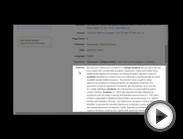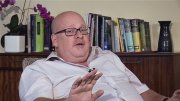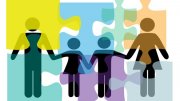 Being a pharmacist, you may think I would always suggest a bottle of something for what ails you. However, first and foremost, I believe in the “do no harm” motto when it comes to healthcare. To me, that means to first try the least invasive route to feeling your best as possible, like a stress-preventing measure, special diet, or exercise program before popping a “magic pill.” Lifestyle changes can help prevent adverse effects and interactions associated with some drugs, herbs, and supplements. It may be a cost-effective and comparatively safe addition to your health and wellness regimen. “Do no harm” to your pocketbook as well.
Being a pharmacist, you may think I would always suggest a bottle of something for what ails you. However, first and foremost, I believe in the “do no harm” motto when it comes to healthcare. To me, that means to first try the least invasive route to feeling your best as possible, like a stress-preventing measure, special diet, or exercise program before popping a “magic pill.” Lifestyle changes can help prevent adverse effects and interactions associated with some drugs, herbs, and supplements. It may be a cost-effective and comparatively safe addition to your health and wellness regimen. “Do no harm” to your pocketbook as well.
For most people, music is an important part of daily life. Some rely on music to get them through the morning commute, while others turn up a favorite playlist to stay pumped during a workout. Many folks even have the stereo on when they’re cooking a meal, taking a shower, or folding the laundry.
Music is often linked to mood. A certain song can make us feel happy, sad, energetic, or relaxed. Because music can have such an impact on a person’s mindset and well-being, it should come as no surprise that music therapy has been studied for use in managing numerous medical conditions.
All forms of music may have therapeutic effects, although music from one's own culture may be most effective. In Chinese medical theory, the five internal organ and meridian systems are believed to have corresponding musical tones, which are used to encourage healing.
Types of music differ in the types of neurological stimulation they evoke. For example, classical music has been found to cause comfort and relaxation while rock music may lead to discomfort. Music may achieve its therapeutic effects in part by elevating the pain threshold.
Music may be used with guided imagery to produce altered states of consciousness that help uncover hidden emotional responses and stimulate creative insights. Music may also be used in the classroom to aid children in the development of reading and language skills. Receptive methods involve listening to and responding to live or recorded music. Discussion of their responses is believed to help people express themselves in socially accepted ways and to examine personal issues.
There is strong scientific evidence supporting the use of music therapy for mood enhancement and anxiety/stress relief, according to Natural Standard research.
Source: www.psychologytoday.com
You might also like:

















you will find articles on the web on all kinds of psychological health and all kinds of counselling also.. I have schizophrenia and I bought a book called the early course of schizophrenia to find out what I could about this condition as I take a tablet for it its called amusilpride I take one a day at 200mg Ive been discharged from the psychiatrist but feel they never really gave me the answers I need I lead a normal life working 2 jobs raising 2 kids I also passed my driving test.. I dont let it rule my life some times I dont take my tablet and have had no reoccurence of what was happ…